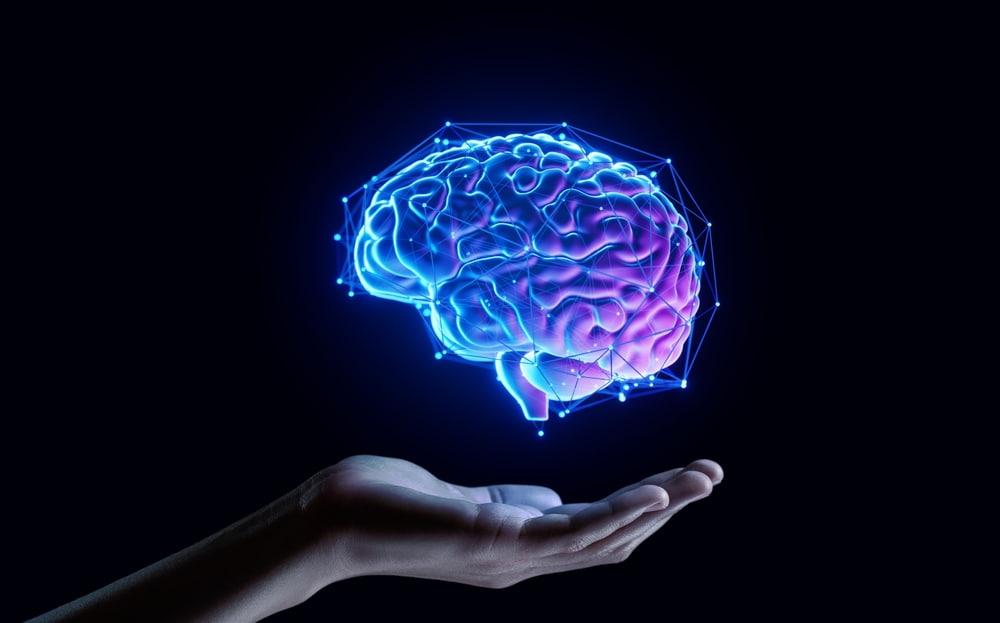Discover the True Mental Clarity Meaning and Unlock Your Potential


Discover the True Mental Clarity Meaning and Unlock Your Potential mental clarity is a force that profoundly affects your work speed, decision-making ability, and overall happiness in a busy life. When the mind is cluttered, even small tasks seem big; it is difficult to maintain focus, and stress increases rapidly. But when you achieve mental clarity, your thoughts become clearer, your decisions become more accurate, and your inner potential begins to shine.
In this article, today you will know what mental clarity really is, why it is so important, and how you can reawaken the power of your mind through simple habit changes. Get ready. A little awareness and the right strategy can transform your daily life.
What is Mental Clarity?
Mental clarity is a state of mind characterized by optimal cognitive and emotional functioning.
Simply put, it means a clear, focused, and well-organized mind free of excessive distractions, lack of focus, or mental clutter.
Key Characteristics of Mental Clarity
When you have mental clarity, you typically experience the following:
Intense focus: The ability to maintain focus on a task or thought, where your mind does not easily wander or feel foggy.
Organized thinking: Your ideas and thoughts flow logically, which helps you recognize, understand, and structure them effectively.
Effective decision-making: You can weigh the weight of information and make solid decisions that are consistent with your goals and values, without being overwhelmed by hesitation.
Clear perception: A state of being fully present and engaged in the present, where you efficiently absorb sensory input and information.
Reduced stress and overwhelm: Your mind remains calm, which helps you control emotions and handle life’s complexities more easily and resiliently.
The Importance of Mental Clarity
Why is Mental Clarity Essential?


Effective Decision Making
Removes Confusion: When the mind is clear, we can analyze information and situations rationally without being influenced by emotions or unnecessary thoughts.
Better Choices: A clear mind helps us make quick, correct decisions, which play an important role in both personal life and professional success.
Increased Productivity and Efficiency
Sharp Focus: Mental clarity enables us to fully focus on the task at hand, resulting in faster, error-free work.
Less Mental Fatigue: With no distractions, the brain expends less energy, allowing us to maintain focus for longer periods and tire less easily.
Coping with Stress and Anxiety
Feeling of Control: When we can think clearly, we feel in control of the situation, which significantly reduces stress and anxiety.
Emotion Regulation: Clarity helps us better understand and manage our emotions, allowing us to respond thoughtfully rather than react impulsively.
Increased Problem-Solving Ability
Creativity: A clear and calm mind makes room for new ideas and creative solutions.
Handling Complexity: When complex problems need to be broken down into smaller parts and analyzed, mental clarity makes that process easier.
Improved Relationships
Presence: Mental clarity helps you be fully present in conversations and relationships. You listen attentively and can respond more meaningfully.
Empathy: When your mind is clear, you have more mental energy to understand others’ feelings and needs.
Mental Clarity and Focus
Mental Clarity
Mental clarity is when your thoughts are clear and well-organized simultaneously. It can be called a state of being free from mental fog or unnecessary stress. It creates a clear foundation. When your mind is calm and clear, the brain’s powers can be used easily. This helps in making correct and logical decisions.
Learn More: Healthy lifestyle routines for better mental clarity
Attention
Attention is the ability to remain completely focused on a specific task, goal, or thought. It directs your mental energy in one direction, without distractions or interruptions.
It enables you to use mental energy effectively to achieve your goals. It increases productivity and work quality.
Benefits of Improving Mental Clarity
Improved Decision Making: When the mind is clear, information and situations can be analyzed rationally, free from emotional influences or mental clutter. Mental fog is removed, making it easier to make quick, effective decisions even in complex situations.
Increased Productivity and Efficiency: You can easily focus on your work and maintain that focus for extended periods. This results in work being done faster, with fewer errors, and with higher quality. With a clear mind, you can easily identify the most important tasks and allocate your time and energy accordingly.
Reduced stress and anxiety: Mental clarity frees your mind from unnecessary thoughts, worries, and fears, which makes you feel calmer physically and mentally. It gives you the strength better to handle difficult situations or challenges in life without fear. It allows you to see problems as opportunities for growth rather than failures.
Improved problem-solving skills: A clear mind helps you consider different aspects of problems and apply critical thinking. Removing mental clutter increases your creativity and ability to think innovatively, helping you arrive at new and effective solutions.
Improved relationships and communication: When your mind is clear, you can be fully present in conversations with your friends, family, or colleagues, which in turn improves the quality of your communication. It helps you better understand others’ feelings and be more empathetic.
Good physical and mental health: Mental clarity fosters a positive attitude, which reduces the risk of depression and mental distress. Low stress and a calm mind lead to a good night’s sleep, which is essential for maintaining overall physical well-being.
Factors Affecting Mental Clarity
Common Causes of Mental Fog


Lifestyle Causes
These factors are directly related to our daily habits:
Insufficient sleep: The brain repairs itself and organizes information during sleep. Without adequate sleep (7-9 hours), the brain cannot properly complete these processes, resulting in decreased attention and memory.
Excessive stress: Chronic stress increases cortisol levels in the brain. High levels of cortisol negatively impact cognitive function and memory.
Lack of a poor diet and drink: Eating processed foods, excess sugar, or refined carbohydrates causes blood sugar levels to fluctuate, which causes a rapid drop in energy and causes brain fog. Not drinking enough water can lead to rapid deterioration in attention and memory.
Lack of exercise: Regular physical activity increases blood flow and oxygen supply to the brain. Lack of exercise can slow down brain function.
Excessive screen time: Spending long periods on a computer or mobile phone can overstimulate the brain and cause eye or mental fatigue.
Physical and hormonal causes
Internal changes in the body can also cause brain fog:[1]
Hormonal changes: During pregnancy and menopause, hormonal changes in estrogen and progesterone can affect memory and attention. Fluctuating blood sugar levels due to thyroid problems or diabetes can also cause brain fog.
Vitamin or nutritional deficiencies: Especially vitamin B12 and iron deficiencies can affect brain function and nerve health.
Inflammation: Long-term low-level inflammation in the body can disrupt the function of brain cells, which is considered one of the main causes of brain fog.
Health Conditions and Treatments
Brain fog can occur as a side effect of certain illnesses or treatments:
Mental health problems: Anxiety, depression, or other mental health issues directly affect attention and clarity of thought.
Viral infections: Many people experience long-term brain fog after COVID-19 or other chronic viral infections.
Certain medications: Brain fog can occur as a side effect of certain medications (such as chemotherapy, some sleep or pain medications).
Chronic diseases: Brain fog is also a common symptom of diseases such as fibromyalgia, autoimmune diseases (such as lupus), or chronic fatigue syndrome.
Note: If brain fog is chronic and causes serious problems in daily life, it is essential to consult a doctor to find the underlying cause.
External and Internal Distractions
The table below shows clear examples of both external and internal distractions.
| External Distractions | Internal Distractions |
|---|---|
| Noise / Busy Environment Examples: talking, traffic, construction sounds. | Anxiety or Worry Example: stress about work, future concerns. |
| Social Media / Notifications Phone alerts, email pings, frequent messages. | Lack of Focus Mind wandering, jumping between tasks. |
| Cluttered Workspace Messy desk, visual distractions. | Fatigue or Low Energy Poor sleep, mental exhaustion. |
| Physical Discomfort Improper lighting, temperature, or seating. | Negative Self-talk Doubting yourself, overthinking weaknesses. |
| Unexpected Interruptions Phone calls, someone entering the room. | Rumination Overthinking past events or mistakes. |
| Quick Tips: Reduce external distractions by decluttering your space, muting notifications, and setting time blocks. Reduce internal distractions by practicing deep breathing, taking short breaks, improving sleep quality, and breaking tasks into smaller chunks. | |
Strategies to Increase Mental Clarity
How to Get Mental Clarity
Mind Management Strategies
These practices help reduce mental clutter and sharpen your focus.
Mindfulness and Meditation
Goal: To observe your thoughts without judgment, so that they lose their ability to distract you.
Action Step: Sit quietly for 5-10 minutes and focus on your breathing. Whenever your mind wanders, gently bring your attention back to the sensation of breathing. This strengthens your ability to concentrate.
Journaling
Goal: To free up mental RAM by transferring your worries and to-do lists to paper.
Action Step: When you feel overwhelmed, quickly write down everything that comes to mind (tasks, fears, ideas). This reduces cognitive burden, freeing up mental space for clear thinking.
Single Task
Goal: To give your full attention to one thing at a time.
Actionable Steps: Avoid switching between multiple tasks, such as checking email while writing a report. Use techniques like the Pomodoro Technique (25 minutes of focused work, 5 minutes of break) to maintain sharp focus.
Manage stress effectively
Goal: Prevent stress hormones (like cortisol) from interfering with your executive function and memory.
Actionable Steps: Incorporate deep breathing exercises into your day. When you feel stressed, try the 4-7-8 method (inhale for a count of 4, hold for a count of 7, exhale for a count of 8).
Lifestyle and Physical Health
Your brain health is closely linked to your overall well-being. The following physical habits are essential for achieving mental clarity:
Quality Sleep
Goal: Aim for 7-9 hours of uninterrupted sleep consistently every night.
Actionable steps: Avoid looking at screens that emit blue light, such as phones, tablets, or computers, for at least an hour before bed, as blue light inhibits the production of the sleep-promoting hormone melatonin. Adequate and good sleep is crucial for mental stability and focus.
Hydration


Goal: Drink enough water.
Actionable steps: Even mild dehydration can negatively affect attention, memory, and mood and can cause “brain fog.” Therefore, drink water regularly throughout the day. It’s wise to start with a glass of water as soon as you wake up in the morning.
Brain-friendly diet
Goal: Eat nutritious foods that boost brain function.
Actionable steps: Include foods rich in omega-3 fatty acids (such as oily fish and walnuts), antioxidants (such as berries and dark green vegetables), and whole grains in your diet. Avoid consuming excess processed sugar and refined carbohydrates, which can suddenly lower energy and disrupt focus.
Regular Exercise
Goal: Stay physically active.
Steps to Take: Regular exercise increases blood flow and oxygen supply to the brain. Even a short activity like a 15-30 minute brisk walk or jog can instantly boost your mood and focus, which is very helpful for mental clarity.
Environment and Organization
Your external world reflects your internal state.
Organize your space
Goal: A clean space means a clear mind. Physical clutter creates visual and mental distractions.
Steps to Take: Keep your desk, workspace, and surroundings tidy. Follow the “less is more” principle to reduce sensory overload.
Minimize digital distractions:
Goal: Protect your attention from constant interruptions.
Steps to Take: Turn off unnecessary notifications on your phone and computer. Set specific times to check email and social media, and avoid responding to them immediately.
Set clear priorities and goals:
Goal: Prevent feeling overwhelmed by an endless to-do list.
Action: Identify the top 3 most important tasks at the beginning of your day. Focus on completing them before moving on to less important tasks.
Daily Habits to Improve Mental Clarity
Start your morning calmly
Morning is the foundation of your day. Instead of rushing, give your mind some time to prepare:
Avoid your phone: Don’t check it for the first 15-30 minutes after waking up. This keeps your mind from being immediately distracted by other people’s needs or news.
A glass of water: Drink a glass of water on an empty stomach. It hydrates the body and increases blood flow to the brain, reducing brain fog.
A brief meditation or breathing exercise: Sit quietly for 2 to 5 minutes and focus on your breathing. This reduces stress hormones and increases focus.
Physical activity
A little daily exercise is essential to keep your body and mind active:
Regular walking: Walk or jog briskly for at least 15-30 minutes a day. Exercise increases oxygen and blood flow to the brain, which makes your thinking clearer.
Sitting Breaks: If you work long hours, get up every hour and do some light stretching or walking. This helps you maintain your focus.
Focus and Work Habits
You can maintain mental clarity by working efficiently:
Identify Top 3 Tasks: Identify your three most important tasks at the beginning of the day. Focus on these tasks first. This reduces the stress of getting things done.
Reflect and Organize
Create a habit of clearing mental clutter at the end of the day:
Express Gratitude: Think or write down five things you are grateful for every night. This will help you focus your mind in a positive direction and increase your mental well-being.
The Connection Between Mental Clarity and Productivity
How Mental Clarity Increases Productivity
Mental clarity is a state of mind that is clear, focused, and stress-free, which directly lays the foundation for higher productivity. When your mind is clear, your brain function peaks, and you can work more effectively.
Here are the main reasons why mental clarity increases productivity:
Maintaining deep focus
When the mind is clear, it is not easily distracted by unnecessary thoughts or worries. It allows you to focus completely on a specific task. As a result, you can do more in less time, the quality of work increases, and the chances of making mistakes are reduced.
Effective prioritization
A clear mind can easily separate important tasks from cluttered information. You can quickly identify which tasks are most important to your main goal. Through this, you direct your energy and time towards the most productive tasks, which in turn makes your productivity results more significant.
Quick decision-making
Mental fog and hesitation are eliminated. A clear mind can analyze situations logically and make quick, correct decisions. As indecision is eliminated, work does not get stuck, and the overall pace remains steady.
Reduced mental fatigue
When the mind is well-organized, the brain does not have to expend extra energy to deal with chaotic thoughts. The brain is less tired as stress and clutter are reduced. As a result, you can maintain focus for a longer period of time and sustain interest in work.
Increased ability to solve creative problems
A calm and clear mind encourages you to think of new and innovative ideas. When complex problems arise, the brain can easily consider different aspects and find creative solutions. This helps to remove obstacles in the progress of work.
Why is the relationship essential?
This relationship is based on a simple principle: quality attention = quality output.
If your mind is cluttered and overloaded with thoughts, your attention will be repeatedly broken. As a result, you may work for a long time, but your productivity will be low. This gives rise to a state of “being busy” but “not being productive”.
On the other hand, when you have mental clarity, you can consciously control your attention. This means you are not only working, but working in the best way. This improves your productivity not only in quantity but also in quality.
How Clear Thinking Boosts Performance
In professional and academic performance
Clear thinking directly affects the quality and speed of your work.
Improved focus and concentration:
Improvement: Clear thinking eliminates internal noise (such as anxiety or distraction), allowing you to devote your full cognitive capacity to the task at hand. This enables deep work, which is essential for solving complex problems and achieving mastery.
Results: Faster learning, fewer mistakes, and significantly higher-quality work.
Improved problem-solving:
When thinking is clear, the mind can break complex problems into smaller parts, identify root causes, and rationally evaluate potential solutions without becoming overwhelmed.
Results: You overcome obstacles quickly, innovate effectively, and avoid making emotionally reactive decisions, which often create more problems.
Effective prioritization and execution
Improvement: Clear thinking enables you to assess the value and urgency of tasks accurately. You know where to allocate your limited time and energy.
Result: You complete tasks in the right order, make the most of your time, and ensure you focus on meaningful tasks rather than just being busy.
In Decision Making and Strategy
Clear thinking is the foundation of effective leadership and strategy building.
Intentional Decision Making:
Improvement: Clear thinking distinguishes between facts and feelings. It reduces the influence of cognitive biases (such as confirmation bias or emotional attachment) on your choices.
Result: Decisions are more rational, data-based, and better aligned with long-term goals, leading to better outcomes.
Strategic Foresight:
Improvement: A clear mind can step back and analyze long-term trends and anticipate future challenges or opportunities.
Result: You move from a reactive mode to a proactive strategic planning mode, allowing you to position yourself for success ahead of competitors or colleagues.
In Communication and Relationships
Performance often depends on how effectively you communicate with others.
Specific Communication:
Improvement: Clear thinking helps you organize your thoughts logically before speaking or writing. You choose the most accurate words to convey your message.
Results: Misunderstandings are reduced, meetings are more productive, and your ideas are expressed with greater impact and persuasion.
Reduced Conflict and Stress:
Improvement: When your perceptions are clear, you are less likely to misinterpret other people’s actions or intentions, and you can manage your emotional reactions more effectively.
Results: Professional and personal relationships are strengthened, the workplace is calmer, and mental fatigue from conflict is reduced.
Real-Life Examples of Improved Mental Clarity
Ability to prioritize work
When a busy office worker starts making a clear list of daily tasks, his mind becomes less cluttered. As a result, he can easily understand which tasks need to be done first and which ones need to be done later. Work speeds up, mistakes are reduced, and stress is felt less.
Improved decision-making ability
Many people hesitate even in small decisions. But when mental clarity increases, the same person can make decisions quickly and confidently, such as taking a new job, choosing a course, or starting a project.
Gaining a new perspective on solving problems
An entrepreneur was feeling tired and stuck. After starting a mindfulness practice, his mental clarity increased. He then began to see previously unsolvable problems clearly and find new, creative solutions.
Reduced stress and improved time management
A parent who was struggling to cope with a busy life set aside just 10 minutes a day to breathe and sit quietly. Within a few days, his mind was organized, stress was reduced, and time management improved.
Increased attention span
A student who was repeatedly losing focus while studying reduced screen time and started studying at specific times. The results were clearer memory, faster learning, and easier test preparation.
FAQ
Q: What is mental clarity?
Mental clarity means the ability to think clearly and make focused decisions.
Q: How can I improve mental clarity?
Take short breaks, stay hydrated, reduce digital distractions, and practice mindful breathing.
Key Takeway Discover the True Mental Clarity Meaning and Unlock Your Potential
Mental clarity is more than just a calm mind it is the foundation of better decisions, stronger focus, and a more purposeful life. When your thoughts are clear and organized, you gain the ability to see your goals with precision, overcome distractions, and act with confidence. Whether it’s through mindful breathing, reducing daily clutter, improving sleep, or setting intentional priorities, every small step you take toward mental clarity unlocks a greater version of yourself.
By nurturing your inner calm and clearing the mental noise, you open the door to higher productivity, deeper creativity, and a life that truly reflects your potential. Ultimately, when your mind is clear, your path becomes clearer too and that is where transformation begins.









